At the source of heat and light: energy veterans visit Kazan CHPP-3
Pioneers are welcomed at the station in honour of the anniversary
June has become memorable for Tatarstan energy industry — the largest heating plant of Kazan, CHPP-3, celebrated its 50th anniversary. In honour of the half-century anniversary, the station held a number of festive events, which culminated in a gala night in Piramida cultural and entertainment complex with the participation of Tatarstan Prime Minister Alexey Pesoshin. Following the traditions, Kazan CHPP-3 was visited by veterans of energy. The guests were shown a new power unit of the station, a lot of questions were answered and the implemented projects and ambitious plans of the enterprise were discussed. Read more in the report of Realnoe Vremya.
Energy is a continuity
Kazan CHPP-3 is a strategically important object for Tatarstan: for 50 years it has provided light and heat to industrial enterprises, residential buildings and social infrastructure. The installed electric capacity of the station today is 789,6 MW, the thermal power is 2,390 Gcal/h.
Responsibility for the life support of Kazan citizens has determined the nature of the team: experience, hard work, continuity of generations have always been in demand at the station. Kazan CHPP-3 throughout its entire history has maintained traditions and connection with veterans. So, every year the station holds meetings with honoured workers: they are invited to tea, visited on the eve of holidays, given gifts.
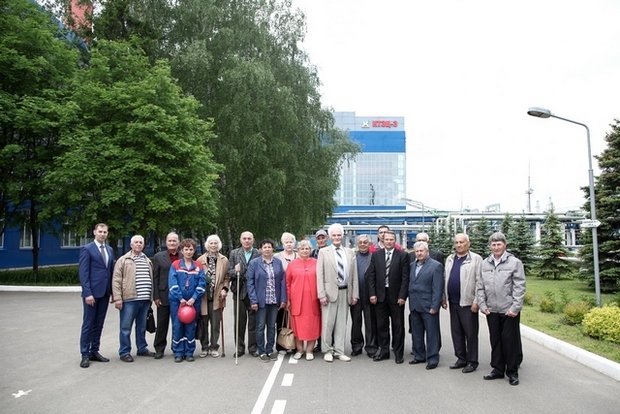
KCHPP-3 has been visited by more than a hundred former employees of the enterprise. At the gate, the guests were met by the station management and young employees. The labour collective of the Kazan CHPP-3 is a single living organism. Every worker is valuable for the station. ''We pay tribute to you, our veterans, those who stood at the origins, who for half a century made wise and far-sighted decisions. Today's achievements of CHPP-3 is including your merit,'' addressed with a welcoming speech to the former employees of the station Director Dmitry Demidov.
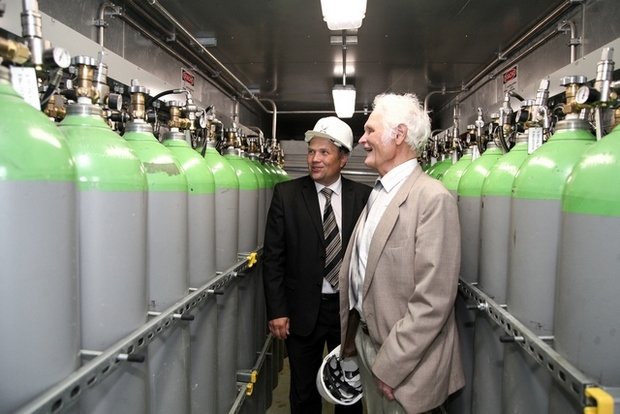
Then the main programme started. First, veterans were invited to visit workplaces they occupied in the recent past. There, they were awaited by present employees with food tables. Then the guests went to see the new power unit of the station, which was officially launched with the participation of the president of the republic last year. Employees of Kazan CHPP-3 conducted a tour around the new building and showed the power unit, the heart of which is the most powerful turbine in Tatarstan 9HA.01. Apparently, the unit made a strong impression on the guests: the veterans were keenly interested not only in the construction, but also in the operation of the equipment.
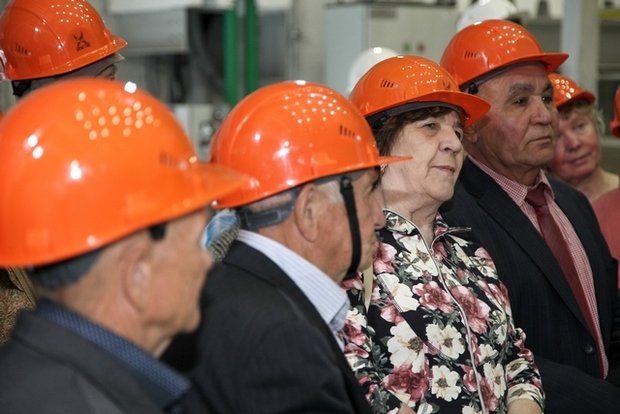
''The new station block is just a miracle. I got huge pleasure from viewing the equipment, it is a wonderful machinery,'' admired former duty engineer of Kazan CHPP-3 Vladimir Bezbryazov.
''It is good that young people manage all this. We probably couldn't have done it now. It's nice to see,'' added Vladimir Zubov, former head of the electrical laboratory.
''There was a wasteland around the station, and we lived in trailers''
After the tour, the groups moved to the Museum of Kazan CHPP-3. It is here the wave of emotions covered the guests. On memorable photos there were colleagues-pioneers, many of whom are no longer alive.
''Those who once offered me a helping hand in difficult situations remained only on photos,'' Vladimir Zubov said with trembling voice. The former head of the electrical laboratory dedicated 35 years of his life to the station. Today, Vladimir Ilyich is on a well-deserved pension, and his business is continued by his son, who today also, like him, works at the Kazan CHPP-3 as the head of the electrical shop. The access regime was not as strict as it is now, and Zubov Junior has been at the station since childhood.
The thermal power plant so sunk into the boy's soul, that later he decided to link his fate with this station in the footsteps of his father.
''The station has changed beyond recognition,'' said Zubov Senior. ''Over the years, of course, it's harder to come here. But it is still very nice, we are still invited,'' the energy veteran said.
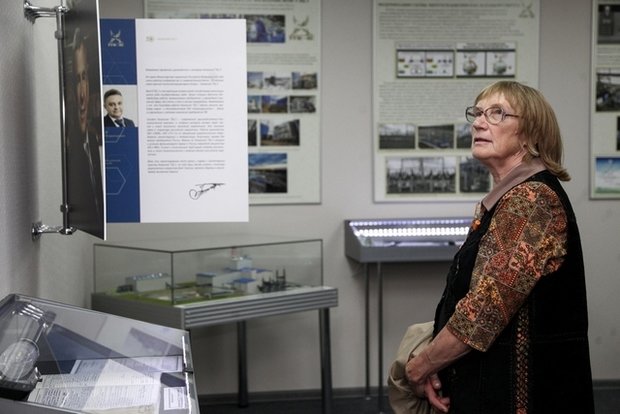
Another aksakal of KCHPP-3, Khamis Khamidullin, worked at the station for 41 years.
''I came to KCHPP-3 in 1971 as radiographer in the technical control department. When we carried out the first launch of the power unit, around the station was just a wasteland – no fence, no roads, no transport, the territory could only walked in rubber boots,'' Khamis Akramovich remembered the initial stages. ''For three days we lived at CHPP-3 in trailers, and the director didn't come back home for weeks. The lack of staff badly affected the speed of preparation for the launch of the first energy boiler – we were looking for power engineers throughout the Soviet Union: there came specialists from Armenia, Moldova, Ukraine, Kyrgyzstan. But the main backbone, the leadership was ours, from Kazan. The installation of the following boilers were directly during operation. Now 90% of workers at the station are people with higher education, who know and understand even at the very beginning of their career. But we came to the station only after finishing 8-10 classes and managed with boilers and turbines. Therefore, almost everyone had their own mentor — so the experience was transferred from the older generation to beginners. I retired in 2013. Being at the station again is exciting. Thanks for not forgetting us,'' through tears, the veteran uttered.
''The hardest thing is the first step. And it's done!''
In the museum one could find not only historical photos from the laying of the first stone of the heating plant to the modern days. There are memoirs of former employees of the station stored, when reading them you can understand that the work of power engineers is complex, dangerous and responsible.
''We worked hard. These were difficult times, but we knew that we were solving the most important problem, that our work was needed, that the heat of our station was eagerly awaited in the city and at the plant. People worked selflessly and achieved that the station was transferred to the Kazan power system. In place of the intense period of installation and preparation of the complex for start-up there came hard daily work on working out the modes of operation of the boiler and increased responsibility for ensuring the reliability of heat supply to the existing productions and those being under construction. The main burden on the operation of power equipment falls on the shoulders of operational personnel, who passed through the difficulties of the first start-up with honour. The hardest part is the first step. It's done!'' first head of the production technology department of the station Yevgeny Eichenwald wrote in his memoirs.
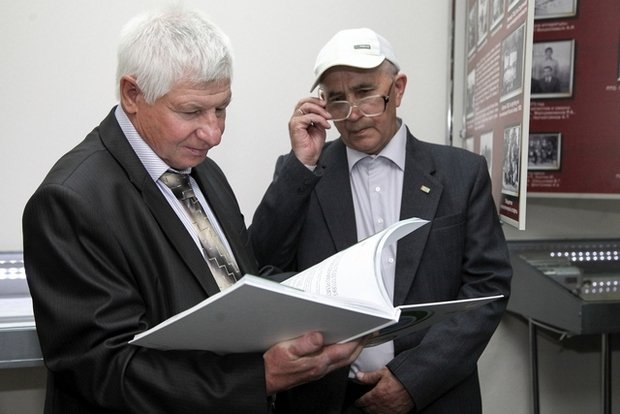
Here is an excerpt from the memories of the first director of the station, Fatykh Shagiev:
''In 1966, I was appointed as director of Kazan CHPP-3. I became the director, but I did't know where my thermal power plant in Kazan was being constructed. They said that somewhere behind the plant Orgsintez. In a frosty Sunday on February 12 my son and I went to look at it. We passed through Orgsintez – there was a snow field around, no buildings, nobody. Then we finally saw a lone wagon with a smoking pipe. We started knocking on the door. The angry sleepy voice replied, ''What do you want? Get out!'' We asked to get warm — silence. We started shouting about what we were looking for, asking where the CHP plant was being built. Then the door opened gently and the man let us into the trailer. It was the head of the plant under construction, Yefimov Y.G. We talked. He treated us to tea, warmed, then showed us what exactly they began to build. The foundations of a canteen had been laid, a building for the builders, etc. That's it. With this man, the main builder of the CHPP-3, well aware of his work, an excellent organizer, we easily found a common language in the work and in constructive disputes we found a right solution to any problem,'' Shagiev wrote.
Later, veterans gathered in the auditorium of the Kazan CHPP-3, where they were shown a film-reconstruction of the events of New Year's eve from 31 December 1978 to 1 January 1979. On this night, the air temperature in the area of Kazan CHPP-3 fell to a record -52 degrees, which is by 13 degrees below the permissible temperature mode of operation of electrical equipment. In the course of the heroic and responsible performance of their duty by the power engineers, despite the severe weather conditions, employees of CHPP-3 saved Kazan from freezing, preventing the development of tragic situations similar to those in the neighbouring regions.
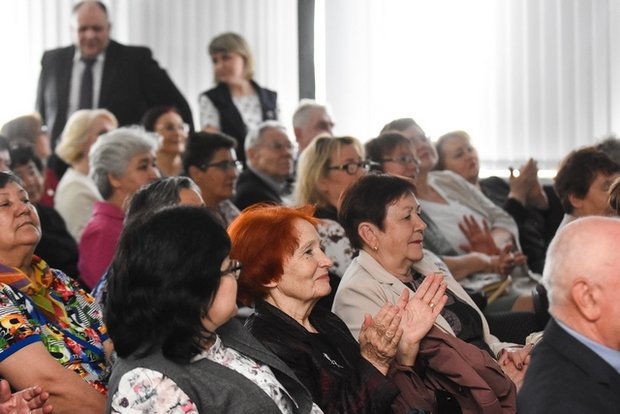
The event ended with the presentation of anniversary books to veterans and a concert programme, which also included a gala night.